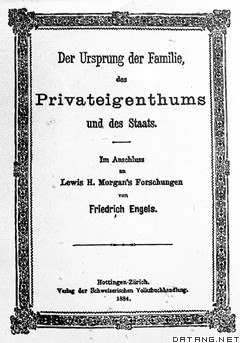1) family management system


家庭经营制
1.
This paper analyzes two types of agricultural economic organizations, namely, the family management system and enterprise plus farmer from the perspective of system economics, and points out the proof that the long-time existence of family economic organization and its low efficiency lies in different characteristics, one-purpose use of the capitals and the uncertainty of the agricultural economy.
对家庭经营制和“企业+农户”两种农业经济组织形式进行了制度经济学分析。
2) household contract institution


家庭承包经营制
1.
The ideology and the welfare function of the agricultural land because of the strain between population and land lead to the household contract institution.
意识形态和人地关系紧张而导致的土地的福利性共同作用促成了家庭承包经营制的制度安排。
3) Household operation


家庭经营
1.
Some people suggest that the essential cause is the contradiction between household operation and uniform market, so they have doult about household operation.
近几年,“三农”问题日益成为人们关注的焦点,很多人认为,家庭分散经营与统一市场之间的矛盾是产生“三农”问题的根本原因,因此对家庭经营这种形式产生质疑。
4) family management


家庭经营
1.
There are three kinds of operation in form including family management,enterprise operation and cooperative organization operation,family management still be the major style which scale is too small.
我国私有林的经营形式包括家庭经营、企业经营、合作组织经营三种。
2.
With the theory of institutional changes of new institutional economics, this article analyses the causes of new agricultural machinery working organization generation, under the condition of family management in china.
文章运用新制度经济学的制度变迁理论,分析了现阶段,在家庭经营的条件下,我国新型农机作业组织产生的原因,并运用交易成本理论对各种农机作业组织形式进行分析比较,指出各种组织形式的优缺点及适用范围,为各地选择适合的农机作业组织形式提供帮助,为在家庭经营条件下实现农业机械化提供道路选择。
3.
There exists a series of theoretical or practical mistakes if the industrialization of agriculture in China,such as particularly stressing on the leading enterprise;making light of farmers organization,unilaterally pursuing scale management, weakening family management,and excessive specialization,etc.
我国在推进农业产业化的过程中,存在过于偏重大型龙头企业,轻视农户组织,片面追求规模经营,弱化家庭经营,过度专业化等一系列的理论或实践误区,影响了农业产业化的健康发展。
5) household management


家庭经营
1.
An Empirical Analysis on the Technical Efficiencies and the Decomposition of TFP of Farmer s Household Management;
农户家庭经营技术效率与全要素生产率增长分解(1999~2003年)——基于随机前沿生产函数与来自湖北省农户的微观证据
2.
The necessity of strengthening household management and its new approaches was discussed in this paper.
本文论述了加强农户家庭经营管理的必要性,探讨了农户家庭经营管理的新途径。
6) family operation


家庭经营
1.
This paper discusses five problems including family operation, appropriate scale management of agriculture, agriclultural industrialzation, transfer of surplus agricultural labor, and stitutions of agricultural land.
本文从家庭经营、规模经营、农业产业化、农村剩余劳动力、农地制度创新等5个方面总结了理论界对小农经济改造的争议与研究,并认为改造小农经济应以邓小平“两个飞跃”理论作为理论基础。
补充资料:《家庭、私有制和国家的起源》
| 《家庭、私有制和国家的起源》 Der Ursprung-der Familie,des-Privatei genthums und des Staats F.恩格斯关于古代社会发展规律和国家起源的著作,是马克思主义国家学说的代表作之一。副标题为《就路易·亨·摩尔根的研究成果而作》。写于1884年3~5月,同年10月在苏黎世出版单行本。1892年,恩格斯写了《新发现的群婚实例》一文,作为本书的附录。全书包括2篇序言,9章正文。书中,恩格斯研究了史前各文化阶段与家庭的起源、演变和发展,着重论述了人类史前各阶段文化的特征,早期的婚姻关系和从原始状态中发展出来的几种家庭形式,指出一夫一妻制家庭的产生和最后胜利乃是文明时代开始的标志之一 。恩格斯根据大量史料,阐述了原始社会的基本特征。分析了原始社会解体的过程和私有制、阶级的产生,揭示了国家的起源、阶级本质及发展和消亡的规律。指出国家和阶级、私有制一样,不是从来就有的,而是在经济发展的一定阶段上产生的。国家是阶级矛盾不可调和的产物,是经济上占统治地位的阶级进行政治统治的工具,是凌驾于社会之上而且日益与社会脱离的特殊公共权力,其作用是协调各阶级的矛盾。国家随阶级的产生而产生,也必将随阶级的消亡而消亡。本书是恩格斯运用唯物史观研究国家的重要成果,它科学地阐明了家庭、私有制、阶级的起源与国家产生的关系,极大地丰富了马克思主义的政治学说。
|
说明:补充资料仅用于学习参考,请勿用于其它任何用途。
参考词条
